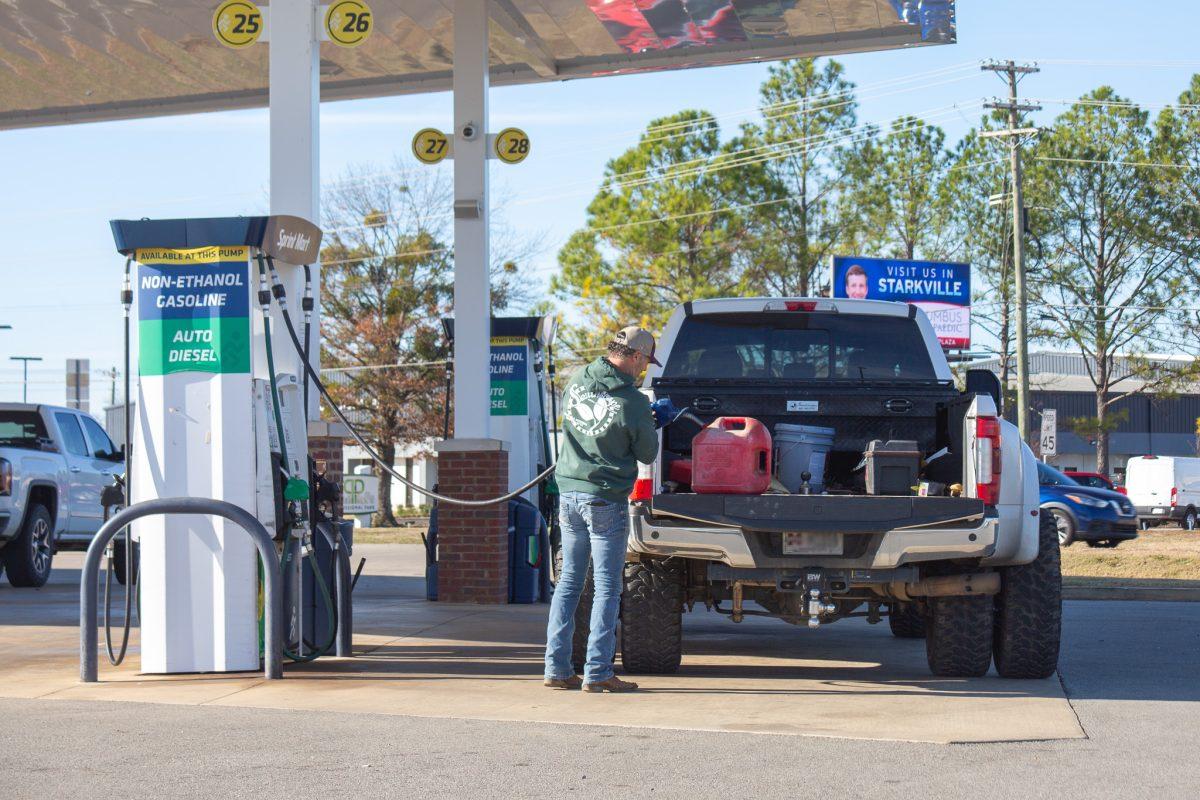Pickup trucks serve as a status symbol of masculinity across the country and in southern states such as Mississippi, especially. This is accompanied by the fact that pickup trucks are also among the biggest polluters on the road — a fact that is often pushed aside by marketers and buyers alike.
The 1917 Ford Model TT was the first pickup truck created for the purpose of helping farmers haul bigger loads that they could not haul in their then-standard Model Ts. According to an article published by The Washington Post, the pickup truck has since grown from these roots to “evoke a kind of manhood that embodies self-reliance, competence, mastery over the environment and a physicality most men have no need for in their day-to-day lives.”
According to the Union of Concerned Scientists, heavy duty vehicles, which encompass pickup trucks, delivery trucks, tractor trailers, buses, garbage trucks and cement mixers, generate over 25% of global warming emissions from the transportation sector. This sector contributes to the largest share of global warming emissions overall.
Nickos Nolan is a junior accounting major at Delta State University and is the proud owner of a 2019 GMC Sierra. Nolan bought this vehicle for a simple reason — he loves trucks.
“I like being up high and seeing the road clearer, more than smaller cars,” Nolan said.
Nolan stated he was far too attached to his pickup to make the switch to a more environmentally-friendly vehicle.
“For one, I never drove an electric vehicle so I wouldn’t know how that would be,” Nolan said. “I’m assuming it would be the same, but I’m too used to gas vehicles, and I love my truck.”
Caleb Ward is a senior communication major at Mississippi State University who owns a 2001 Ford F-250. On the topic of climate change, Ward stated that he was quite skeptical.
“I’ll be honest, I don’t really believe in climate change. I think it’s stupid,” Ward said. “I mean, you got the weather and everything but what we put in the air ain’t really going to affect it that much. I mean, they’re trying to make it to where we’re going to be walking around everywhere and all this other stuff.”
Ward’s skepticism of climate change keeps any concerns about global warming emissions at bay. Because of this, Ward has not the slightest intentions of giving up his truck.
“I like my truck and I need it for what I need,” Ward said. “And if you start making these vehicles that are like electrical and everything else, you’re not going to have the power you need with a gas engine.”
Jason Gordon is a business development representative at Carl Zeiss Vision who travels through Mississippi, Alabama and Florida frequently. Gordon owns a 2022 Toyota Tundra, a modern hybrid-electric vehicle. Gordon is more gas conscious than eco-conscious and has not given much thought to the model’s increased benefits for the environment.,
“Honestly I didn’t ever think about it that way,” Gordon said. “I did it more so because of gas mileage, that the newer Tundras they gave off less emissions, but they were also part electric. So I was able to get better gas mileage.”
Gordon said that his 2022 Tundra does not consume as much gas as his previous Tundra vehicles due to it being a hybrid truck operating through both gas and battery. In his case, Gordon does not have to concern himself too much with the fluctuating cost of gas.
On the other hand, fuel costs are a huge concern for Nolan and Ward.
“These prices are overpriced,” Nolan said. “I mean, I wish it was back to like $1.08. I mean, these fuel cost prices are going up too high.”
Ward shares the same sentiment.
“It’s outrageous — through the roof,” Ward said. “I mean, we had a pipeline in North Dakota that was open and President Biden cut that pipeline out and that made fuel go through the roof. I remember when diesel was cheaper than gas in 2021. It was $1.16 and gas was like $1.23.”
Although many concerns have been raised in recent years about transportation emissions, society does not seem to be shifting away from pick-up trucks completely. Gordon feels that men will continue to cling to their trucks.
“One: convenience. Two: you’re able to haul more, you know, especially being in a country or rural area,” Gordon said.
Ward feels that men can and will find a new symbol to proclaim their status or masculinity.
“I mean, you could jack up a Jeep and make it act like a truck,” Ward said. “I mean, there’s going to be other vehicles. There’s other vehicles that they can use to like keep their masculinity, you know. I mean, you got Jeeps, you got 4runners. Like you can do anything to a vehicle and beef it up to the horsepower you need it to be.”
Nolan shares the same sentiment when it comes to men finding new symbols of status and masculinity.
“I think they are going to do what they always do now,” Nolan said. “I mean, some people just stay in the gym, some people just might be a certain dominance in their relationship, I don’t know. They’re definitely going to find a new symbol. Trucks isn’t everything for men to show their masculinity.”
Categories:
Pickup trucks serve as masculinity symbol, environmental threat
Pickup trucks average around 20 to 25 miles per gallon, where regular cars average around 30 miles per gallon.
0
Donate to The Reflector
Your donation will support the student journalists of Mississippi State University. Your contribution will allow us to purchase equipment and cover our annual website hosting costs.
More to Discover








